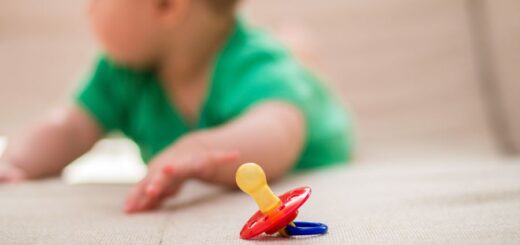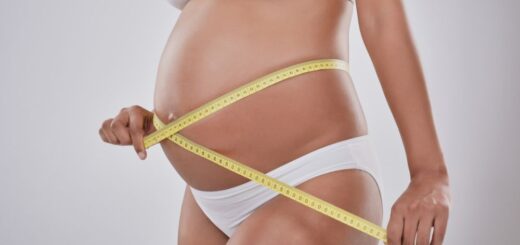Vitamin d for babies-Do babies really need?
Vitamin D is a very special vitamin. Strictly speaking, it is a hormone precursor. Vitamin D is only found in very small quantities in food (e.g. in high-fat fish such as mackerel), which is why the vitamin D requirement cannot be met with food intake alone. Our body can produce vitamin D itself – with the help of solar radiation. That is why it is also known as “sun vitamin” because ; sun is best vitamin d for babies .
Vitamin D is formed and stored by the UVB rays of sunlight on our skin. It is important to soak up enough sun from spring to autumn so that the body is still adequately supplied in the winter months. The Federal Institute for Risk Assessment (BfR) states that ten to 20 percent of the required vitamin D is ingested through food, 80 to 90 percent through sun exposure.
This is exactly why babies are at increased risk of vitamin D deficiency. Newborns should not be exposed to direct sun. The body cannot yet sufficiently produce the vitamin itself in this phase of life. In the past, children were therefore given cod liver oil rich in vitamin D. Today there are special medications that are tailored to the needs of children according to the current recommendations for babies.
Why You Need Vitamin D?
Vitamin D takes on important functions in our body. It plays a key role especially for the calcium and phosphate balance. It is only through vitamin D that our body can store the calcium from food in the bones. And thereby give them their strength. A deficiency in vitamin D can lead to osteoporosis in older adults. In childhood, if there is a deficiency, there is an extreme risk of rickets. Mineralization of the bones is not sufficient in this disease. The result: they are soft and the skeleton is deformed and deformed (e.g. bow legs, deformation of the spine, soft skull bones). In order for the bones to have sufficient strength in the growth process. An adequate supply of vitamin D is important. In addition, a lack of the vitamin would lead to reduced muscle strength and an increased susceptibility to infections.
Why do babies have too little vitamin D?

In breast-fed babies, it is usually poor mother’s vitamin D supply that leads to a child’s vitamin D deficiency. Un breastfed babies usually have little chance of meeting their needs themselves.
Vitamin D can be produced by the body itself – but this requires direct sunlight on the bare skin. This vitamin D production through the sun is our main source of vitamin D. But unfortunately the sun exposure in the winter months in Central and Northern Europe is not enough to produce enough vitamin D.
Even in summer, a clothed baby – without sunscreen on the face – would have to be exposed to direct sunlight for a few hours in order to produce sufficient vitamin D. However, since babies are hardly exposed to the direct sun, this value is almost never reached.
Even in summer, un breastfed babies are in most cases dependent on vitamin D supplements.
What already has a serious impact on adults is devastating for babies: Because while many adults can fall back on a vitamin D storage from the summer, this is very small in newborn babies, so the risk of serious deficiency is extremely high.
In addition, especially in the first months, babies show tremendous growth and the skeleton is formed – a vitamin D deficiency during this time leads to serious malformations. Some of which are irreversible. A healthy development of the immune system, nervous system and brain also depends on vitamin D – a deficiency can lead to autoimmune diseases, developmental disorders and serious illnesses.
Vitamin D for breastfeeding babies
So babies urgently need vitamin D , but the sun is almost always a source. CaIt depends on the mother’s vitamin D status. While the requirement for infants is between 400 IU and 500 IU (IU = International Units) vitamin D for breastfeeding, the breast milk of many mothers contains only about 60 IU per liter due to the poor supply.
The daily intake of vitamin D allows the mother to increase this value . However, it is not possible to provide this at the doses officially recommended today sufficient concentration of vitamin D to meet the child’s needs.
This may seem a lot in view of the official recommendations. But it is much more like a natural supply from the sun. Which would produce over 10,000 IU per day for the mother.
Mothers who want to feed their child through breast milk need at least 5000 IU of vitamin D daily.
Breastfeeding mothers should therefore – depending on the season – supplement 2500 to 5000 IU to enrich their breast milk with sufficient vitamin D. It is important to take vitamin D daily.
Our previous article What happens if you have low vitamin D during pregnancy? in the title vitamin D during pregnancy information is provided..

Hello, I’m Dorothy. I love writing and researching articles. Reading books about baby health, care and pregnancy is my favorite. I will be sharing delicious and healthy information on food and baby food during pregnancy.












Great Article Dorothy.
this article is spot on. It contains the same information my pediatrician gave me while talking about breast-feeding! Grateful for articles like these!
Fantastic article ! Who knew all that Vitamin D actually does
This is all true, thank you for the great information.
Thank you for this article. My sons pediatrician forgot to tell me that we needed vitamin D drops but articles like this helped inform me enough, I knew my son needed it.
Very informative article Dorothy! It was a good read, really helped as I am a biology student and this provided additional information for my research.